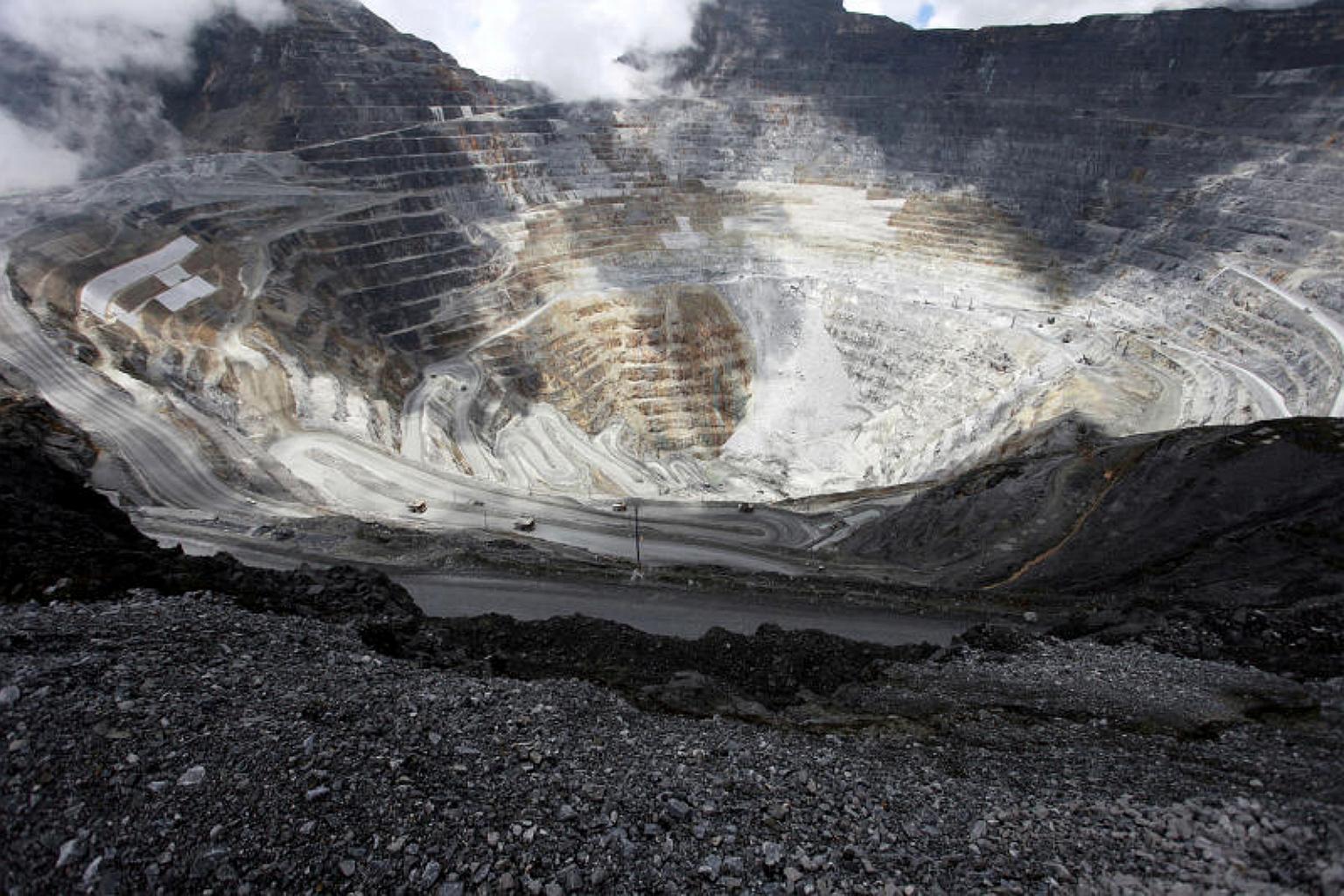Indonesia to sign landmark $5.5b deal to increase stake in Papua mine to 51%
Sign up now: Get insights on Asia's fast-moving developments

File photo of trucks operating in the open-pit mine of Freeport's Grasberg copper and gold mine complex near Timika, in the eastern region of Papua, Indonesia.
PHOTO: REUTERS
Follow topic:
JAKARTA - The Indonesian government plans to announce on Thursday (July 12) that it is paying less than US$4 billion (S$5.5 billion) to get the majority stake in one of the world's largest mining operations based in Papua from US Freeport McMoran and partner Rio Tinto.
The move would be a political boon to President Joko Widodo ahead of the general election next April.
Finance Minister Sri Mulyani Indrawati will hold a press conference at 4pm (5pm Singapore time) to disclose details of the sale and purchase agreement of the Grasberg mine, located in the Indonesian province of Papua.
Indonesian state mining holding company Inalum is taking over the majority stake in the world's second-largest copper mine, which also yields gold, after a long-heralded acquisition negotiation.
After the deal, Indonesia would have a 51 per cent stake in the mine while Freeport would hold the remaining stake. Indonesia currently has a less than 10 per cent stake.
"Indonesia would pay less than US$4 billion (S$5.5 billion) to increase the stake to 51 per cent," a government source told The Straits Times. He declined to give the exact figure.
The landmark deal is expected to be seen as a move by Mr Joko's administration to assert rights to the country's natural resources.
This could fan nationalist sentiments among voters ahead of the simultaneous legislative and presidential elections on April 17, 2019.
Mr Joko is expected to seek a second five-year term.
Freeport entered Indonesia in 1960s, around the time of a change of leadership from the country's first president Sukarno to Suharto, who then ruled for the next three decades.
Freeport started developing the Grasberg mine in the early 1970s.
Given the lack of infrastructure development, little industry and a cash-strapped government then, the contract with Freeport - involving the extraction of copper and gold - helped to improve the country's economy.
Freeport, however, always had contract terms that were seen as favourable to the company under then authoritarian president Suharto, when the decision-making process was seldom transparent.
Politicians and observers have increasingly been questioning such favourable contract terms since the fall of Suharto in 1998, which sparked various reforms that then led to Indonesia having democratically elected presidents.

